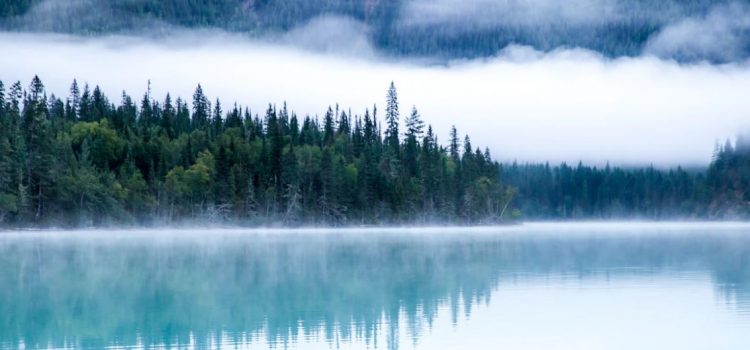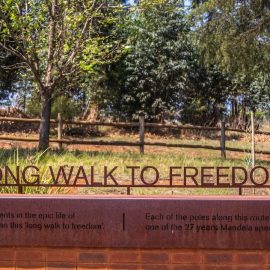

This article is an excerpt from the Shortform book guide to "Walden" by Henry David Thoreau. Shortform has the world's best summaries and analyses of books you should be reading.
Like this article? Sign up for a free trial here.
Why is Henry David Thoreau considered one of the founders of ecology? How did he connect nature with spirituality?
During his two years at Walden Pond, Henry David Thoreau spent hours every day walking and observing the nature that surrounded him. He also strove to live by the rhythms of the natural world.
Continue reading to learn about Henry David Thoreau and nature at Walden Pond.
Thoreau Observed Nature
In the book Walden by Henry David Thoreau, nature is a major theme. At Walden Pond, observing the natural world occupied much of Thoreau’s time. He paid close attention to the animals who lived in the woods, near the pond, and even in various crevices of his cabin. (He mentions a hare who built a nest under his floor, as well as wasps who settled in his windows and walls ahead of the cold Massachusetts winter.) It wasn’t just animals who occupied his attention. Thoreau also became familiar with memorable trees in the area, and he observed how the ponds froze in the winter and thawed in the spring.
(Shortform note: Thoreau wrote many anecdotes about the animals he observed. In Thoreau’s Animals, Geoff Wisner contends that these illustrate Thoreau’s spiritual and scientific engagement with the natural world. Thoreau also took notes on more than 500 plant species during his time at Walden, compiling data that researchers still use to study how those species have responded to changes in their environment. Scientists have compared Thoreau’s notes to modern observations about the plants at Walden Pond and learned about these species’ ability to adapt to changes in climate. Experts consider Thoreau an early practitioner of what we now call “citizen science,” a movement that enables everyone to take part in the scientific process.)
Thoreau also spent hours each day walking in the woods. In the winter, no matter how deep the snow was, he ventured out of his cabin and into the woods. He sometimes visited a tree, other times watched an owl, and often left a fire burning in the hearth. (On one occasion, his bedding caught fire while he was away.) Thoreau also listened closely to the woods. He became familiar not only with natural sounds like the calls of bullfrogs and screech owls, but also with the sounds that revealed the presence of other humans in and around the woods. Those included the sounds of trains traveling to and from Boston, carriages passing along the road, church bells in neighboring towns, and the barking of locals’ hunting dogs.
(Shortform note: In his annotated edition of Walden, environmentalist Bill McKibben writes that Thoreau spent three or four hours walking every day. Experts locate Thoreau in a long tradition of “walking-and-writing,” one continued by Rebecca Solnit with Wanderlust, Olivia Laing with To the River, Robert Macfarlane with The Old Ways, and Cheryl Strayed with Wild. Annie Dillard even earned the title of the “Thoreau of the suburbs” with Pilgrim at Tinker Creek. But, why did Thoreau do so much walking? It’s easy to assume that his walks were motivated by a desire to retreat from society. But, an 1851 journal entry suggests that the true purpose of Thoreau’s walking was to seek out places where he could experience a true, childlike sense of freedom.)
When Thoreau became curious about a natural phenomenon, he investigated it rigorously. For instance, he wondered about the depth of the pond after hearing that some people assumed it was bottomless. So, he took soundings and realized that the point where the pond’s widest and longest measurements intersect was also where the water was deepest. He studied Walden Pond and other ponds nearby. He made observations about their shorelines, the color (and taste) of their water, the fish and animals that occupied them, and the fluctuations of their water levels. Thoreau even noticed that the temperature of the water, which varied throughout each pond, affected what kinds of vegetation grew there.
(Shortform note: Thoreau has been recognized as the first American naturalist to study a lake ecosystem, and he’s counted as a founder of ecology. Many scientists agree with him that Walden Pond is interesting to study: It’s a glacial kettle lake that formed 15,000 years ago as the Laurentide ice sheet retreated at the end of the last ice age. Modern scientists say that in Thoreau’s study of the ponds in Walden Woods, he posed sophisticated ecological questions. He was also committed to his research process. He read Darwin’s On the Origin of Species (and was one of the first Americans to do so), made detailed observations, collected specimens, and expressed optimism about science’s ability to help us understand the natural world.)
Thoreau Connected With Nature
A major reason that Thoreau moved to Walden Pond was to live a life attuned to the natural world rather than set to the rhythm of life in town. He writes that modern society alienates us from the natural world. But, staying in touch with the natural world—with its endless cycle of seasonal change and growth—can inspire us, awaken us, and sustain us both physically and spiritually, he contends.
To Thoreau, connecting with nature wasn’t just about watching the sunrise or listening to the owls. He regarded the time he spent learning from nature as the most important part of his spiritual life. He even considered bathing in the pond every morning as a “religious exercise.” Thoreau writes that we can see great dignity and beauty everywhere in the natural world—even in its small and mundane events.
(Shortform note: For Thoreau, the route between nature and civilization was short, both literally and figuratively. Experts say that his attitude toward nature as a place to find spiritual nourishment reflects broader changes in cultural attitudes about the natural world at the time. Around the time Walden was published, Americans were beginning to regard nature as a place where they could seek peace rather than a place where wildness was to be subdued, as the Puritans had believed when they arrived in New England. The Puritans took the Bible at its word when it described the wilderness as “cursed” and a “kind of Hell” on Earth. They believed they were called to reshape the New England wilderness into a paradise instead.)

———End of Preview———
Like what you just read? Read the rest of the world's best book summary and analysis of Henry David Thoreau's "Walden" at Shortform.
Here's what you'll find in our full Walden summary:
- The philosophy behind Henry David Thoreau's classic novel
- How you can build a meaningful life by living in harmony with nature
- A look at how Thoreau spent his time at Walden Pond, outside the book






